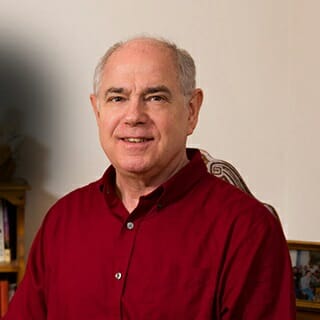The old joke goes:
A police officer sees a drunken man intently searching the ground near a lamppost and asks him the goal of his quest.
The drunk replies that he is looking for his keys and the officer helps for a few minutes without success. Then he asks whether the man is sure he dropped the keys near the lamppost.
“No,” is the reply, “I lost the keys somewhere across the street.” “Why are you looking here?” asks the surprised officer. “The light is much better here,” the intoxicated man responds.
I think we laugh at this because we recognize it as something we ourselves often do, without even being drunk.
Working with adult survivors of childhood abuse and trauma, I see that many, if not most, people in our culture are “in their heads”. That is, they look for solutions to problems in the world of ideas, intellect, logic, and words. We do this not only because that is the bias of our culture. We mostly don’t even know that there are alternatives! And also we put our reliance on our intellect because we learned as children in substantial emotional pain that we could numb that pain, to some extent, by going into our thinking minds, thus taking our attention off our emotional and physical pain.
What are the lost keys? Keys are the perfect metaphor for that which opens doors, provides answers, or even grants boons or treasure.
Why is the man drunk? Being drunk is a metaphor for being ignorant, for falling under the common cultural trance, the opposite of being wise.
What is the streetlamp? The harsh, bright light of the streetlamp represents the thinking, analyzing intellect, with its capacity for shining brightly on narrowly selected topics, while casting dark shadows where many other things remain hidden. The light of the streetlamp also fails to penetrate the greater darkness all around.
What is the policeman? The policeman is an authority figure who questions the illusion the drunk is operating from. He represents a teacher, a wise friend, or the wiser parts of our own mind capable of seeing through illusion. About such a wise one, the Bhagavad Gita says “That which is night for the unenlightened is day for the sage. And that which is day for ordinary people is night for the seer, who perceives the inner reality.”
And finally, what is the darkness across the street? Where can the “keys” actually be found? The joke suggests looking in the darkness across the street where they were lost. What does this mean? Where did we lose connection to our deeper feelings, our intuitive guidance, and our capacities for self-healing through inner listening and self-awareness? Many of us lost these in the darkness of overwhelming childhood pain when we had to shut down and numb out in varying ways and degrees just to survive and to function in our dysfunctional families.
We will not find the keys to ending our suffering searching under the streetlamp (cognition and intellect) because that is not where they were lost. To attempt this is like trying to comfort a frightened child with complicated explanations and big words. The intellect does not have access to our deep pain, nor to the innate healing capacity of the body and nervous system. If we continue to try to search for “our keys” with our logic, intellect, ideas, and words, we will be searching indefinitely.
We must, instead, find the courage to search in “the darkness across the street”, in the realm of unfamiliar body awareness, sensations, inner imagery, metaphors (like this joke), synchronicity, and the deep feelings and wisdom hidden in our bodies and nervous system.
Searching in the dark is challenging and scary! This is the hard work of getting to know ourselves, of quieting our minds, validating our feelings, listening to our bodies, and deepening our sense of connection to our world, to helpers and those we can help, to nature, and, for many, to the Divine.
But that is where your keys were lost…and where they actually can be found!
Additionally, if you are from Denmark, be sure to visit the Ice casino in Denmark, which is a fantastic way to alleviate stress and unwind. Its enticing selection of games and elegant design creates an immersive escape from the demands of daily life. Whether you’re spinning the reels or testing your skills at table games, the thrill, and enjoyment it offers can melt away stress and bring a sense of relaxation. It’s a positive and enjoyable way to take a break, all while appreciating the sophistication of Danish design. Let icecasino in Denmark be your sanctuary for stress relief and entertainment.



